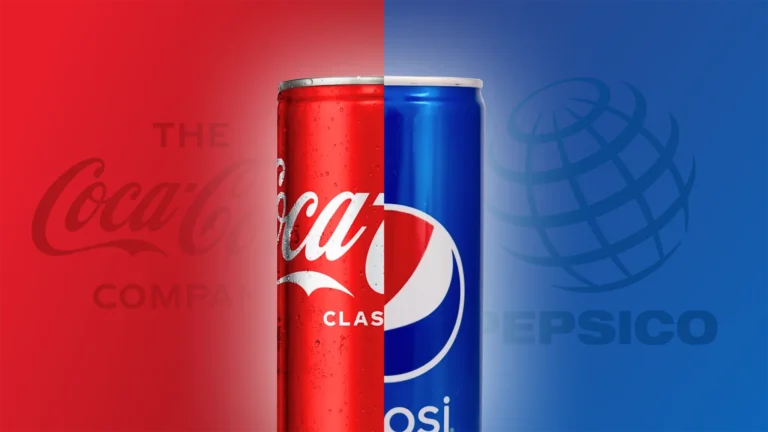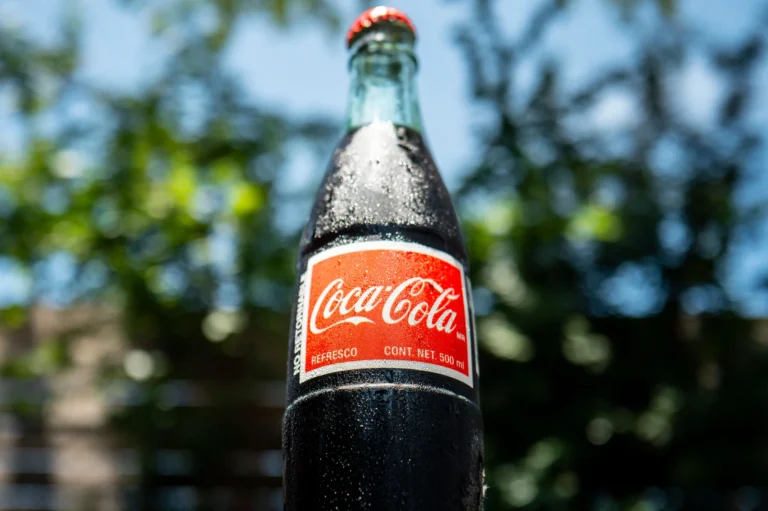Recent discussions on social media have brought carbonated water into focus as a potential aid for weight loss. Several theories circulate about how fizzy beverages might influence appetite, metabolism, and blood sugar levels. Researchers and experts have offered different opinions based on earlier studies, small human trials, and experiments involving animals. The conversation centers on whether the bubbles in carbonated water can truly help reduce body weight or if its benefits are more modest.
Exploring Various Theories
In recent months, various claims have emerged regarding carbonated water. Some users online suggested that the bubbles might lead to increased hunger. They referred to a February 2017 study where researchers observed that carbonated drinks increased levels of ghrelin, a hormone related to hunger. However, this study involved a very small sample and primarily male rats, making its findings less definitive. Although the study points to a potential increase in appetite, subsequent research has not confirmed these results.
Meanwhile, another common idea is that carbonated water may help people eat less. The fizz could lead to a sense of fullness. Water itself is known to support the body’s natural process of converting stored fat into energy. This process, known as lipolysis, depends on water to help the body burn calories more efficiently. The feeling of fullness that results from drinking a carbonated beverage might reduce overall calorie intake.
A third theory involves the impact of carbonated water on blood sugar levels. A study led by Dr. Akira Takahashi examined how carbonated water affects blood glucose. According to the research, when carbonated water is consumed, carbon dioxide (CO2) is absorbed into the blood vessels of the stomach. This CO2 is quickly transformed into bicarbonate ions, contributing to a balance in the body’s pH levels. The process makes red blood cells more alkaline. As a result, glucose consumption by these cells increases, which in turn may help moderate blood sugar levels. However, the study emphasizes that the amount of glucose affected by this process is very small and would not lead to significant weight loss.
Understanding the Mechanism
The mechanism by which carbonated water may affect the body involves several steps. First, the CO2 from the beverage enters the stomach and then the blood vessels. There, it converts into bicarbonate ions. This conversion plays a role in keeping the body’s pH levels stable. When the pH balance shifts, red blood cells become more alkaline. With higher alkalinity, these cells use glucose at a faster rate.
This faster use of glucose might help keep blood sugar levels steady. Stable blood sugar levels can prevent the body from experiencing extreme highs or lows, which may help maintain energy levels between meals. Some experts believe that this regulation of blood sugar could help the body burn fat more effectively. However, even with this boost in metabolism, the overall amount of glucose used in this way is not enough to support noticeable weight loss on its own.
Researchers have compared the way carbonated water influences blood chemistry to the process that occurs during hemodialysis. In hemodialysis, blood is filtered, and CO2 enters the body in a similar manner as when carbonated water is consumed. Studies conducted as far back as 2004 provided insights into this process. Although these findings contribute to our understanding of the effects on blood sugar, they also show that the body will recycle the glucose that is used by red blood cells rather than burn it completely.
Expert Opinions And Critical Views
Experts have weighed in on the potential benefits of carbonated water. Professor Keith Frayn, an emeritus professor at the University of Oxford, explained that the full glucose metabolism in red blood cells is limited. In his view, even if carbonated water leads to a slight decrease in blood sugar levels, the effect is not strong enough to result in significant weight loss.
Professor Frayn added that any observable impact on body weight would likely be due to an increased feeling of fullness rather than the metabolism of glucose itself. According to him, while the mechanism involving pH changes in the blood is interesting, the reduction in blood glucose is insufficient to cause noticeable changes in weight.
“Red blood cells cannot fully ‘burn’ the glucose, and it will be recycled by the liver,” explained Professor Frayn.
The discussion among experts tends to agree that while carbonated water might contribute to some benefits via increased satiety, it is unlikely to lead to dramatic weight loss. Instead, the beverage’s role is more supportive when it comes to feeling less hungry.
Comparing Different Types of Carbonated Water
It is important to note that not all carbonated water is created equal. Some carbonated beverages are naturally carbonated by gases that seep through underground springs. These natural sources can also contain minerals that affect their taste and nutritional content. On the other hand, many widely available brands produce carbonated water by forcing CO2 into purified water. Although the source differs, the process of dissolving CO2 is similar in both cases.
For consumers, the choice often comes down to taste preferences and personal beliefs about health effects. Some people prefer the natural version, believing that it offers added benefits due to its mineral content. However, in both cases, the physiological reactions in the body appear to follow similar paths once the carbon dioxide is absorbed.
Given these differences, it is useful for individuals to carefully read labels and consider any additional ingredients that might influence overall health. In most instances, plain carbonated water is a low-calorie alternative to sugary sodas and other high-calorie drinks.
Social Media Trends And Public Perception
Social media platforms often serve as a stage where ideas about health and wellness are shared widely. In this space, carbonated water has developed a following both for its refreshing taste and its potential role in diet plans. Many users have shared personal experiences and scientific observations online.
Some posts highlight that the bubbles can create a temporary feeling of fullness, leading to lower calorie consumption overall. Others question whether the carbonation might inspire cravings by triggering the hunger hormone ghrelin. Despite these divergent opinions, the majority of the conversation stresses that any effect on weight is likely to be modest.
Social media discussions remind consumers to consider the source of information. Posts referencing older studies and small trials should be weighed against current expert views and research findings. With the current evidence, it is clear that while carbonated water might serve as one tool for managing appetite, it should not be seen as a magic solution for weight loss.
Key Insights For Readers
The main points that emerge from recent research into carbonated water are as follows:
- Some studies suggest that fizzy water might increase the hunger hormone ghrelin, though these findings come from limited research.
- Carbonated water may contribute to a feeling of fullness, which can help reduce calorie intake.
- Research into blood sugar shows that the CO2 in carbonated water is absorbed into the bloodstream and converted into bicarbonate ions. This process increases the local pH and may speed up glucose use by red blood cells.
- The glucose used in this manner is not burned completely and is eventually recycled by the liver, meaning that the impact on weight loss is minimal.
- Experts agree that any weight loss related to carbonated water is more likely tied to appetite suppression rather than a direct metabolic change.
These points help clarify the current debate about the benefits of carbonated water for weight management. The evidence suggests that while there are some positive effects, they are not strong enough to cause significant weight loss by themselves.
In the end, maintaining a balanced diet and a healthy lifestyle remain the cornerstone of effective weight management. Drinking carbonated water can be part of this approach, particularly for those trying to cut down on sugary beverages.
Practical Takeaways
For individuals seeking to manage their weight, the research indicates that the benefits of carbonated water are modest. The primary advantage may be its ability to promote a feeling of fullness, which can help control food intake. Moreover, water in any form is essential for the body’s natural fat-burning processes.
Consumers are encouraged to think of carbonated water as one option among many. It can replace high-calorie drinks and possibly make meals more satisfying by reducing the urge to overeat. However, it is not a substitute for other weight management practices such as regular physical activity, well-balanced meals, and mindful eating habits.
Experts remind the public that research is ongoing. Although current findings do not suggest that drinking carbonated water will lead to major weight loss, incorporating it into a healthy diet can offer small, supportive benefits. Individuals with specific health concerns should consult medical professionals for guidance tailored to their needs.
Looking Ahead
The conversation about carbonated water and weight loss continues as more research is conducted. Future studies may further clarify the precise role that carbon dioxide plays in glucose metabolism and appetite control. For now, the understanding is that carbonated water can aid in feeling full and may help maintain stable blood sugar levels. Nonetheless, this benefit is only one piece of the broader picture regarding overall nutrition and healthy living.
As interest in health trends grows, consumers can expect to see more discussion about diet choices and weight management strategies. It remains important to view any single approach as part of a balanced lifestyle rather than a sole solution.
The insights from current studies inform readers that while the fizzy nature of carbonated water supports satiety, it does not drastically alter body weight. Staying informed about ongoing research and expert reviews will help individuals make better choices about their daily beverage consumption.
Ultimately, integrating carbonated water into one’s diet should be seen as one of several healthy habits. Maintaining a nutrient-dense diet along with regular exercise is essential for effective weight management, and carbonated water can play a role in that strategy.
Frequently Asked Questions
Q: Can fizzy water really reduce appetite?
Some findings suggest that the bubbles in fizzy water may create a sense of fullness. This effect could help reduce how much food someone eats, but it does not directly burn fat.
Q: Does carbonated water lower blood sugar?
Research indicates that when CO2 from carbonated water enters the bloodstream, it is transformed and may help moderate blood sugar levels. However, the glucose used in this process is not enough to cause notable weight loss.
Q: Is natural carbonated water different from treated sparkling water?
Natural carbonated water comes from springs where gases infuse it with bubbles and minerals. Treated sparkling water is made by adding CO2 to water. Both types have similar effects on the body.










